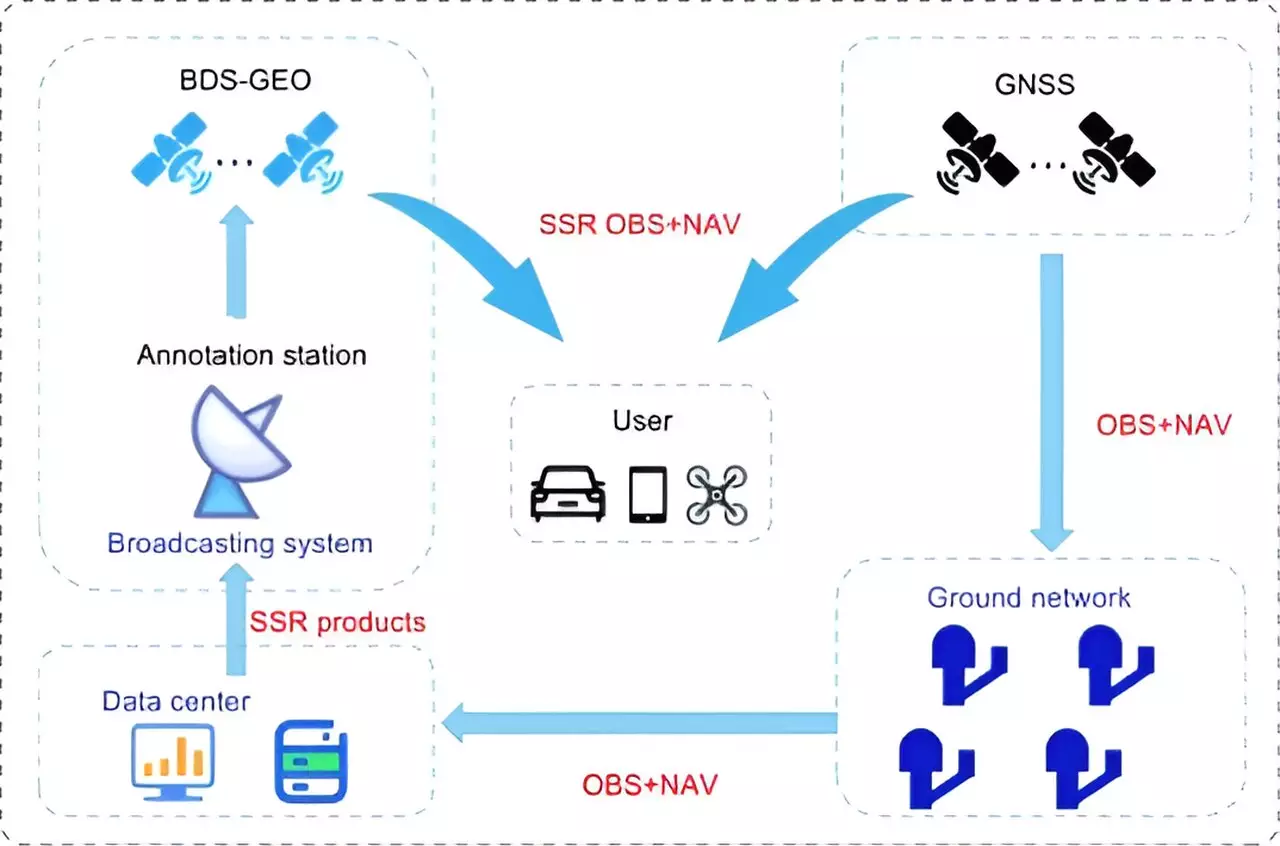The BeiDou Navigation Satellite System (BDS) is currently undergoing a major upgrade to meet the increasing demand for high-precision positioning in various industries. The new services promise to deliver decimeter-level accuracy within minutes, a substantial improvement over the existing capabilities. This development is crucial for emerging technologies like autonomous driving, robotic navigation, and smart city infrastructure, which rely heavily on precise location data for effective operation.
Challenges and Opportunities
While traditional systems like the Global Positioning System (GPS), GLObal NAvigation Satellite System (GLONASS), and Galileo have already set high standards, challenges such as limited regional coverage and long convergence times still persist. This underscores the necessity for enhanced navigation satellite systems like the BeiDou Navigation Satellite System (BDS) to step up and address these issues.
A recent study published by researchers from the Beijing Institute of Tracking and Telecommunication Technology, in collaboration with the Shanghai Astronomical Observatory and Wuhan University, sheds light on the high-precision services of the BeiDou system. The study, released on 24 June 2024, delves into the current state, achievements, and future trajectory of BDS. It particularly focuses on the PPP-B2b of BDS-3, which aims to achieve decimeter-level accuracy within 14 minutes.
Despite the advancements made by BDS-3, it still falls short compared to international counterparts like Galileo’s High Accuracy Service (HAS) and Quasi-Zenith Satellite System’s (QZSS’s) Centimeter-Level Augmentation Service (CLAS) in terms of regional coverage and convergence time. To address these limitations, the research proposes a multi-layer development framework that highlights the integration of low Earth orbit (LEO) satellites.
LEO Satellite Integration
By incorporating a LEO constellation of 288 satellites, BDS can potentially improve its positioning accuracy to better than 5 cm within approximately 1 minute. This enhancement not only boosts global coverage but also significantly reduces convergence time. Simulation results indicate that LEO-enhanced PPP services have the capability to achieve rapid and precise positioning, positioning BeiDou as a frontrunner in high-precision satellite navigation.
Dr. Xingxing Li from Wuhan University emphasizes the importance of advancements in BeiDou’s high-precision services in meeting the escalating demands of modern navigation applications. The integration of LEO satellites, in particular, holds great promise as it enhances coverage and reduces convergence time, bringing us closer to achieving real-time, centimeter-level positioning accuracy on a global scale.
The enhanced high-precision services offered by BeiDou have far-reaching implications for various applications, including autonomous driving, unmanned aerial vehicles, and smart device navigation. This progress marks a significant milestone in the evolution of global navigation satellite systems, solidifying BeiDou’s position as a leader in high-precision services.


Leave a Reply